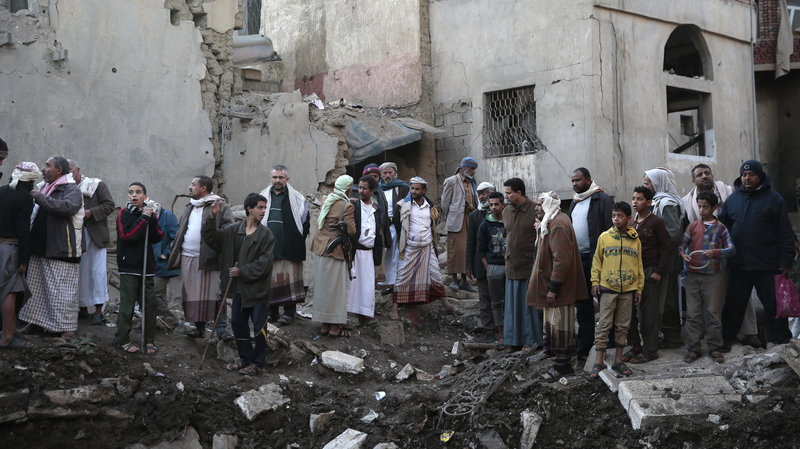Hawzah News Agency (Sanaa, Yemen) - A Saudi-led blockade of Yemen continues to exacerbate a humanitarian crisis that aid groups are calling the most severe in decades.
On Monday, Saudi Arabia said it would start reopening some sea and airports, but aid workers are still reporting difficulty in providing food and medical supplies to nearly 20 million people who need help. Reports says that the main entry point for aid, the Red Sea port city of al-Hudaydah, remains closed.
Rasha Muhrez, director of operations for the aid group Save The Children in Yemen, tells Here & Now's Jeremy Hobson this is a "man-made crisis."
"With this blockade it's very difficult to get supplies, and it's very difficult to deliver those supplies to the health facilities or the clinics to people in need mainly because also there is no fuel," she says. "If this blockade continues, then the humanitarian situation will continue to deteriorate, and unfortunately, we would be unable to save these people in need."
At least 7 million people are reportedly on the brink of famine as drinking water and food is in short supply due to the blockade. Muhrez says residents are relying on food rations from the World Food Program and other aid groups.
"WFP has supplies for the next six weeks or so," she says. "So if they are unable to bring additional supplies in country, they won't be able to feed the 7 million people who are already at a very critical stage, and most of them are malnourished."
The Yemeni medical system has also collapsed. The World Health Organization estimates at least 14 million people lack basic health care and an outbreak of cholera has spread to more than 900,000 suspected cases.
"We have made progress, and there have been fewer deaths from cholera in Yemen, but we will suffer a major setback if we don't have full access to all affected areas," WHO tweeted last week.
Cholera is treatable, but also preventable if people have access to clean drinking water, Muhrez says.
"We see these vulnerable kids lying on beds and with IV fluids in their arms and getting treatment from cholera, which is completely unnecessary," she says. "It shouldn't have happened."
Muhrez explains that cholera spread so rapidly because clean water has been out of reach due to rising prices, lack of fuel to deliver it and now, the blockade.
Drinking water "prices increased more than 400 percent in some places," she says. "If you want to buy a glass of water, you have to pay a couple of thousands of Yemeni rial. And this is like the money that a family could live on for a day."
The U.S. is also facing criticism for providing support to the Saudi bombing campaign in Yemen. This week, Democratic Sen. Chris Murphy called on the Senate to follow the House of Representatives, which passed a resolution on Monday that says the U.S. military is not authorized to assist Saudi Arabia in Yemen.
The House concluded that the Authorization for the Use of Military Force, which was passed after the Sept. 11, 2001, attacks, does not permit the U.S. to fight the Houthis in Yemen.
"This horror is caused in part by our decision to facilitate a bombing campaign that is murdering children," Murphy said, "and to endorse a Saudi strategy inside Yemen that is deliberately using disease and starvation and the withdrawal of humanitarian support as a tactic."
"Peace is not an option in the case of Yemen — it's a must," Muhrez says. "And all parties in this conflict, they need to agree on a solution. It has to happen soon. It has to happen very soon."

